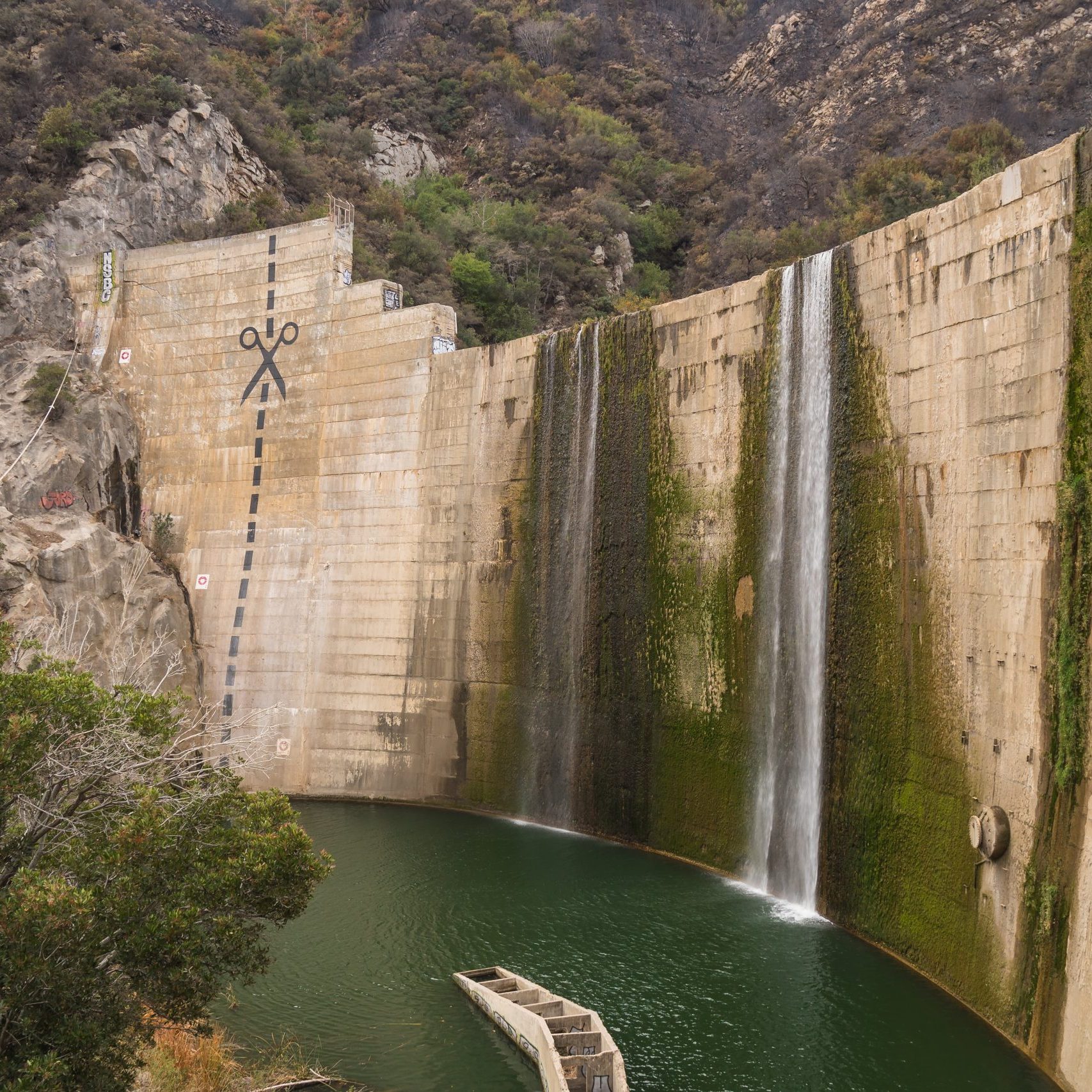
Matilija Dam Removal
The presently envisioned method for the removal of the Matilija Dam is a modification from the dam removal proposal as approved in 2004. Under the proposed modified project, the Matilija Dam removal would be completed in phases described as follows.
Once improvements for flood protection and future sediment transport are in place downstream of the dam, initial dam removal activities will prepare the dam and upstream reservoir for initial sediment release, prior to full removal. During the dry season, two 12-foot diameter tunnels (orifices), would be drilled through the base of the dam near the pre-dam creek channel. The tunnels would be opened just prior to a large storm event. The initial storm event and subsequent storm events must be sufficient in magnitude and duration to move millions of cubic yards of stored sediment from behind the dam downstream to the Ventura River, estuary, and Pacific Ocean. Years may elapse between installation of the tunnels and the arrival of an adequately sized storm.
The opening of the orifices during a large storm would create the initial flush of fine sediment downstream. This initial period, called Phase I sediment transport, may last from a few hours to several days. This initial flush is expected to result in an initially restored creek channel through the dam area and reservoir sediments. Phase II is the continued transport of fine sediment and the somewhat slower transport of coarser sediment deposits (sand and gravel) that have accumulated in the reservoir.
Once an adequate quantity of sediment has been flushed from the dam site, the dam would be removed in one season by lowering it incrementally across the full width of the structure by using controlled blasting, jack-hammering, saw cutting, or other methods. After dam removal, continued Phase II sediment transport would continue. Habitat restoration would be accomplished by managed natural recruitment and non-native plant control. Monitoring of on site and downstream conditions for potential problems such as creation of river flow obstructions and correction of such problems would be part of a post-dam removal adaptive management strategy.
Facts
|
Owner
|
Ventura County Public Works Agency – Watershed Protection (VCPWA – Watershed Protection) |
|
Date Constructed
|
1947 |
|
Purpose
|
Water supply and flood control |
|
Original Height
|
198 feet |
|
Current Height
|
168 feet |
|
Width
|
620 feet |
|
Thickness
|
8 feet at the top, 35 feet at the base |
|
Original Reservoir Capacity
|
7.018 acre feet |
|
Current Reservoir Capacity
|
less than 150 acre feet |
|
Projected Reservoir Capacity
|
0 acre feet before 2030 |

